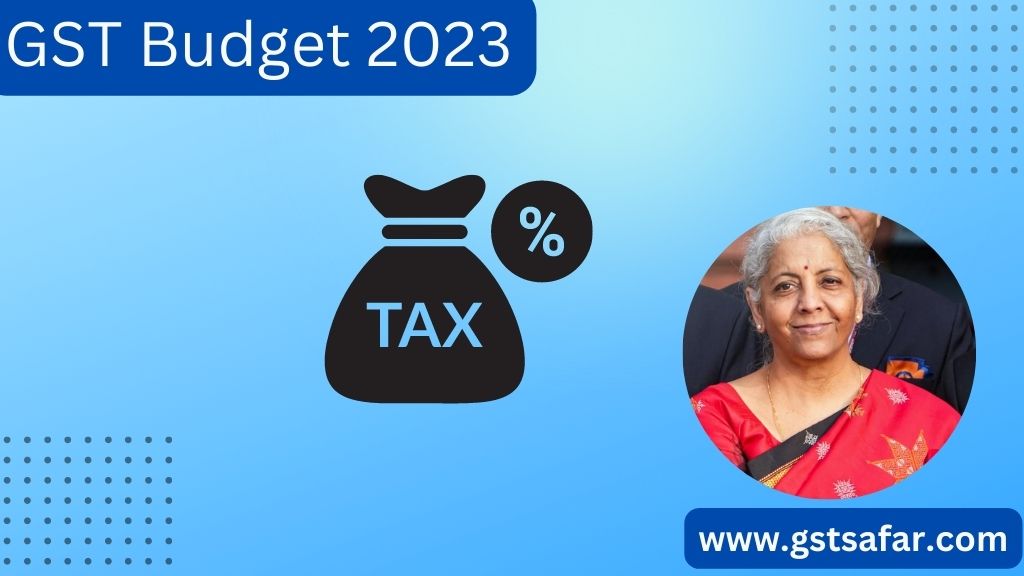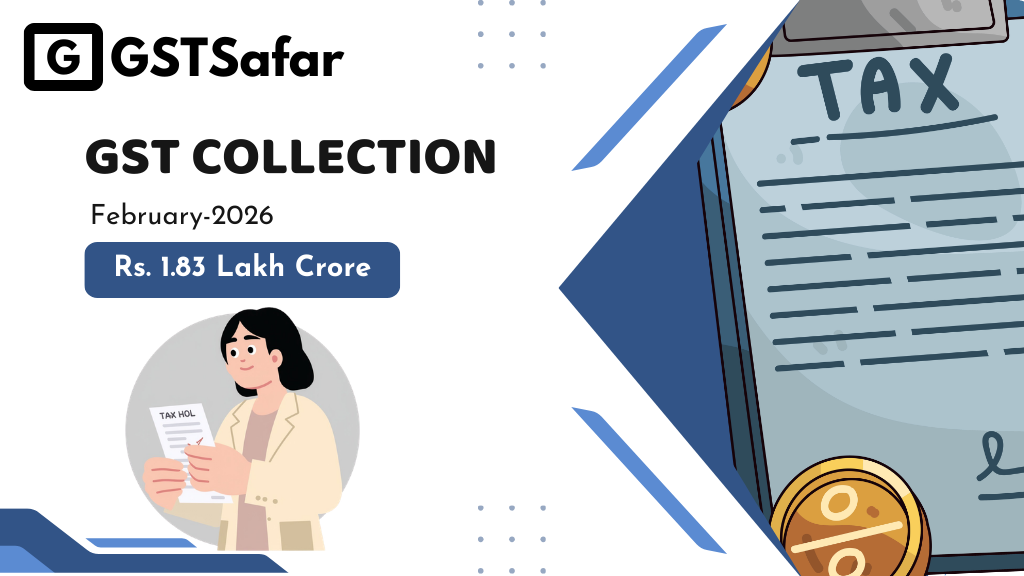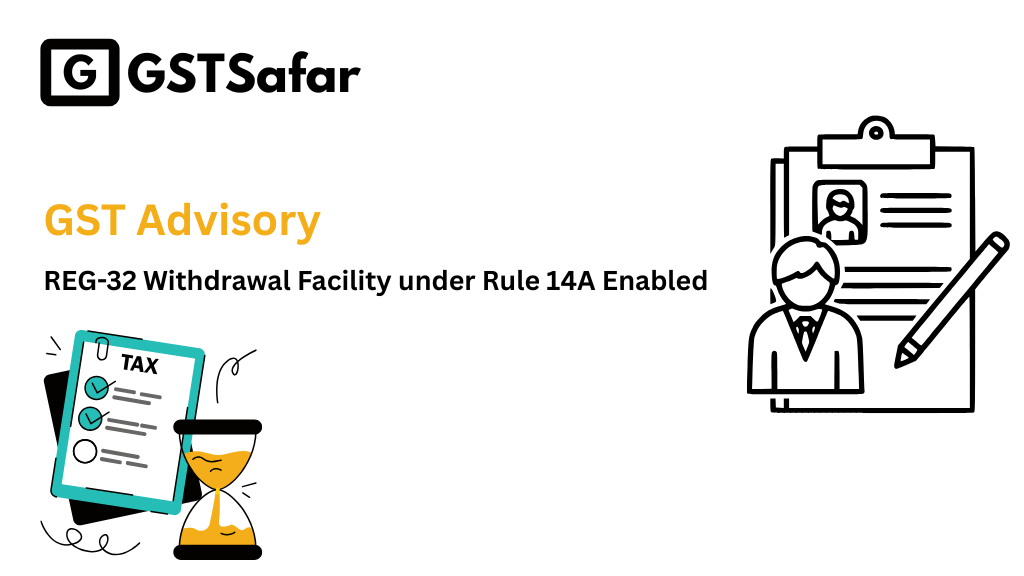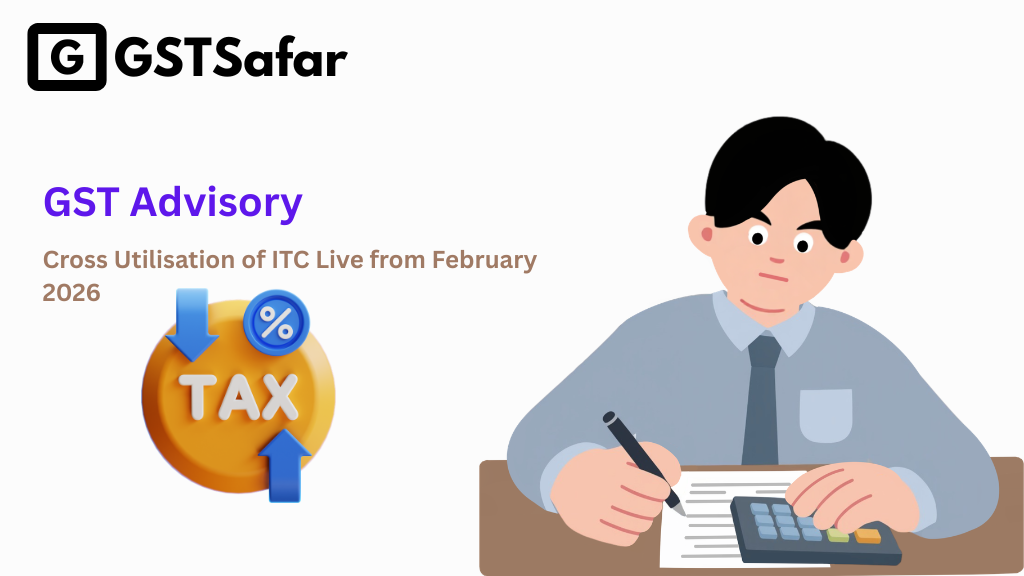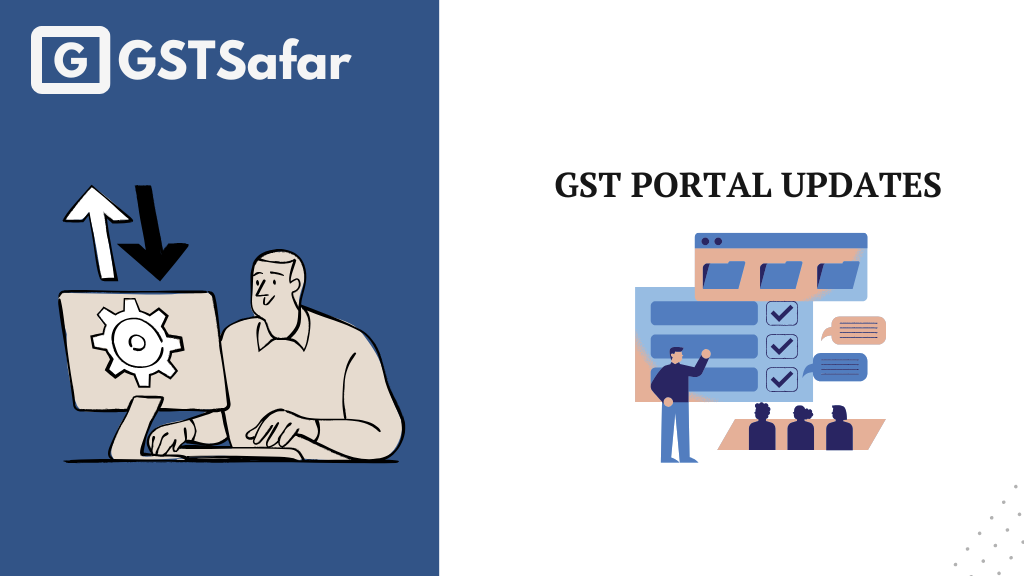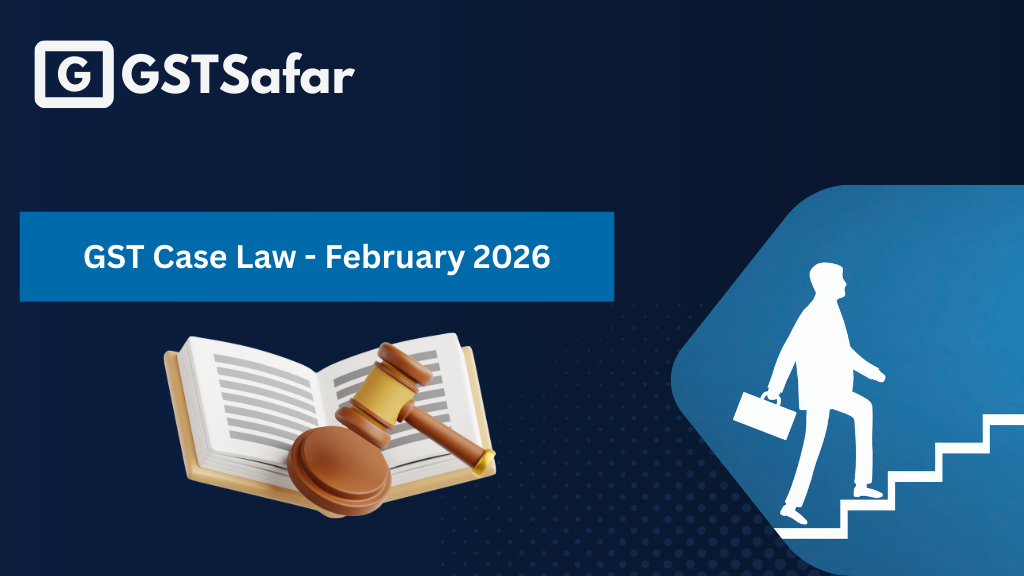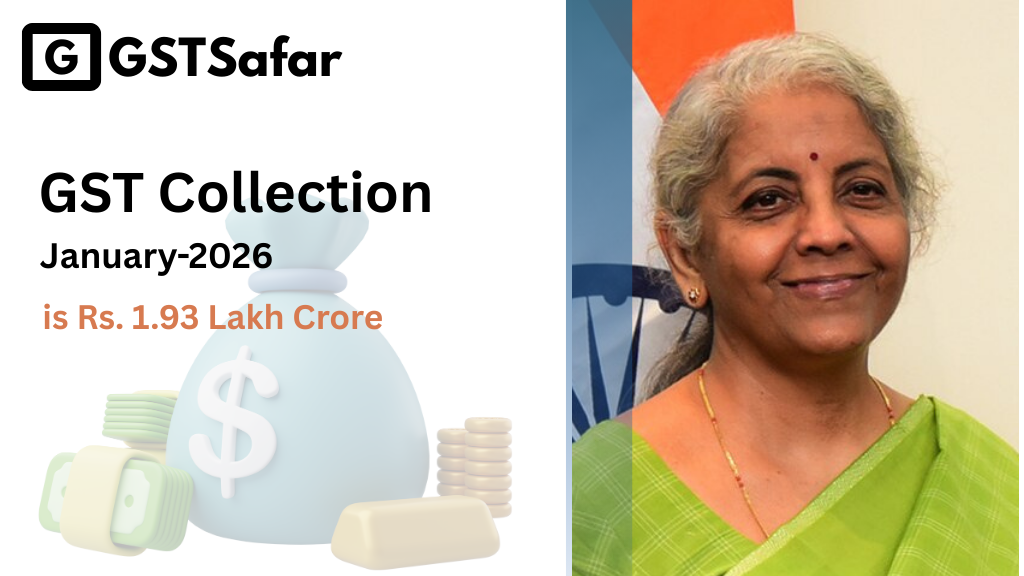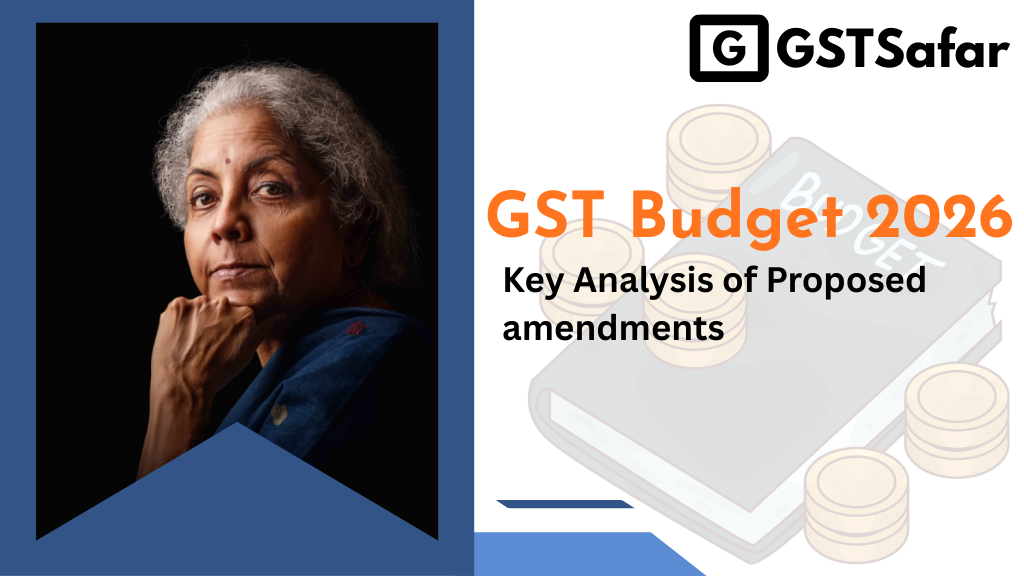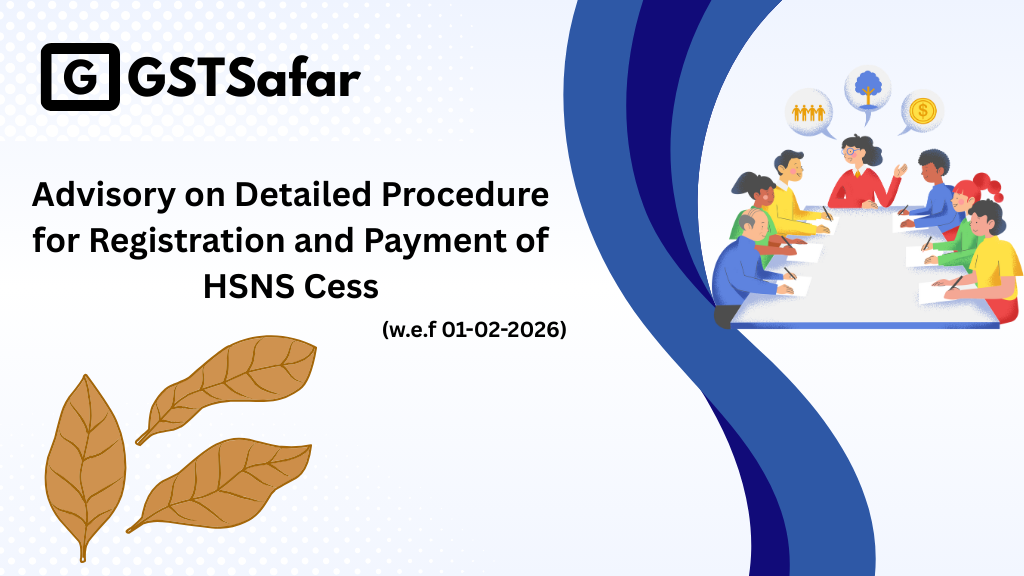Get to know all about GST Budget 2023, Read on for a complete analysis of GST changes in Budget 2023.
Table of Contents
ToggleIntroduction of GST Budget 2023
This article contains all the recent amendments proposed in Finance Bill 2023.Clauses 128 to 144 of this Finance Bill represents gst changes in Budget 2023. All the clauses will come into force on enactment of finance bill in parliament.
This article has been prepared topic wise with our detailed analysis as and when required. References of relevant clauses of Finance Bill 2023 have been given at bottom each topic of changes in gst in budget 2023. Please kindly note that wherever the word CGST Act 2017 is mentioned, it is to be understood that there will be identical change to similar act SGST and UTGST Acts of states and Union Territories
Changes in Composition Scheme under GST in GST Budget 2023
Person supplying goods through ECO will also eligible for both Composition Schemes in GST.
Now, the person who supplies goods through E-Commerce will also be eligible for both Composition Scheme under Section 10(2) and Section 10(2A) of CGST Act 2017.
Analysis:
- There are two composition schemes in GST.
- One is under 10(2) of CGST Act 2017
This is where aggregate turnover in preceding financial year did not exceed Rs 1.50 crores (Rs 75 lakhs for specified states). GST Rate is 1% for manufacturer and trader and 5% for restaurant service.
- Another is 10(2A) of CGST Act 2017
This composition scheme is for suppliers of service (other than restaurant service) where aggregate turnover in preceding financial year did not exceed Rs 50 lakhs. GST rate is 6% in this case.
- Now at present any person who supply goods or services through E-commerce operator, can neither opt composition scheme under sub section 2 of Section 10 nor under sub section 2A of section 10.
- Now in this Finance Bill 2023, it has been proposed that supplier of goods through ECO will be eligible for both the above composition schemes.
- Important observation is that composition scheme under Section 10(2A) is for supplier of services. That means supplier of services will be eligible for composition scheme of 6% under Section 10(2A) of CGST Act 2017 even such supplier supply goods through ECO.
| Clause (d) in Sub Section 2 of Section 10 of CGST Act 2017 is being amended by Clause 128 of Finance Bill 2023Clause (c) in subsection 2A of section 10 of CGST Act,2017 is being amended by Clause 128 of Finance Bill 2023 |
Changes related to reversal of Input Tax Credit in GST in Budget 2023
Now Input Tax Credit for nonpayment to suppliers not to be added now to output tax liability.
Changes in Proviso of section 16(2) of CGST Act, 2017
| At Present | Proposed Amendment |
|---|---|
| Second proviso of Section 16(2) CGST Act,2017 Provided further that where a recipient fails to pay to the supplier of goods or services or both, other than the supplies on which tax is payable on reverse charge basis, the amount towards the value of supply along with tax payable thereon within a period of one hundred and eighty days from the date of issue of invoice by the supplier, an amount equal to the input tax credit availed by the recipient shall be added to his output tax liability, along with interest thereon, in such manner as may be prescribed | Second proviso of Section 16(2) CGST Act,2017 Provided further that where a recipient fails to pay to the supplier of goods or services or both, other than the supplies on which tax is payable on reverse charge basis, the amount towards the value of supply along with tax payable thereon within a period of one hundred and eighty days from the date of issue of invoice by the supplier, an amount equal to the input tax credit availed by the recipient shall be paid by him along with interest payable under section 50 in such manner as may be prescribed |
| Third proviso of Section 16(2) CGST Act,2017 Provided also that the recipient shall be entitled to avail of the credit of input tax on payment made by him of the amount towards the value of supply of goods or services or both along with tax payable thereon. | Third proviso of Section 16(2) CGST Act,2017 Provided also that the recipient shall be entitled to avail of the credit of input tax on payment to the supplier of the amount towards the value of supply of goods or services or both along with tax payable thereon. |
Analysis:
- Generally, ITC to be reversed with Interest if the value plus tax of goods and /or services is not paid within 180 days of the issuance of invoice. Such reversal take place by adding the amount of reversal in to output liability along with interest thereon.
- There is ambiguity in the law related to the above ITC reversal. Let’s understand it.
At present, when payment is not made within 180 days of the issuance of invoice, GST of such invoice shall be reversed by adding the same in output liability.
One cannot issue the invoice for the said reversal, as a result it cannot reflected in GSTR-1. But at a same time, this shall be reflected in GSTR-3B for the payment of the same.
Hence mismatch will arise due to the difference in GSTR-1 & GSTR-3B. Therefore, in order to avoid this clash, the government has proposed the changes in the second proviso of section 16(2) of CGST, Act,2017 in this Budget 2023
- The proposed amendment in second proviso of section 16(2) gives the clear ways of reversal with interest. One can make the reversal by two ways:
- To reduce the ITC equal to amount of reversal.
- Make the payment of amount equal to ITC reversal through DRC-03.
Now the government produce more clarity by proposing that the Interest amount is being calculated as per the section 50 of CGST Act, 2017.
- Therefore, with this amendment one can have clear directions regarding ITC reversal in case of the Payment not made within 180 days.
Third Proviso of Section 16(2) of CGST Act, 2017.
- The third proviso of section 16(2) CGST Act, 2017 says if recipient make the payment for its supply, then he will be entitled to avail the credit for the same.
- Government has proposed change in the above clause by substitute the word “Made by him” to “to the supplier”.
| Second proviso in Sub Section 2 of Section 16 of CGST Act 2017 is being amended by Clause 129 of Finance Bill 2023Third proviso in sub section 2 of section 16 of CGST Act,2017 is being amended by Clause 129 of Finance Bill 2023 |
Exempt Supply under GST will include Supply of warehouse goods before home consumption for reversal of Input Tax Credit in GST
Supply of warehouse goods before home consumption will also now increase reversal of Common ITC as per GST Updates in Budget 2023
If input is used both for taxable and exempt supply, then Input Tax Credit is be reversed in proportion of exempt supply. Now this exempt supply will include supply of warehouse goods before home consumption also.
Analysis:
- Section 17(2) of CGST Act 2017 says that ITC is restricted only to taxable supply when it’s used both for taxable and exempt supply
- Supply of Warehoused goods before home consumption is not supply at all as per Schedule III of CGST Act 2017
- Section 17(3) of CGST talks about exempt supply for reversal of ITC as per Section 17(2) of CGST Act 2017
- Now this supply of warehoused goods will be included in exempt supply by amending explanation of Section 17(3)
- Therefore, if any person supply goods in warehouse before its home consumption, then it will increase its reversal of common ITC
| Explanation to Section 17(3) of CGST Act 2017 is being amended by clause 130 Finance Bill 2023 |
Input Tax Credit for CSR expenses now not eligible in GST.
CSR Expenses now will not be eligible for Input Tax Credit as per GST Changes 2023
Now any expenses incurred for activities relating to obligation under corporate social responsibility referred to in Section 135 of Companies Act, 2013 whether in form of goods or services will not be eligible for input tax credit. In other words CSR activities have been covered in block credit now.
| New cluse (fa) is being inserted in Section 17(5) of CGST Act 2017 by clause 130 Finance Bill 2023 |
Registration in GST not required if person covered under Section 23 of CGST Act 2017
Section 23 of CGST Act will be applicable notwithstanding anything to the contrary in Section 22 and Section 24 of CGST Act 2017 as per gst amendments in budget 2023
Section 23 of CGST Act 2017 will override any conflicting provisions contained in Section 22 and or Section 24 of CGST Act 2017
Analysis:
- Section 23 says that registration in GST is not required for person supplying nontaxable or wholly exempt goods.
- Section 22 is for persons liable for registration.
- Section 24 is for persons liable for compulsory registration.
- Now Section 23 of CGST Act 2017 is being amended retrospectively in the sense that I will be applicable anything to the contrary contained in Section 22(1) and Section 24 of CGST Act 2017
- Example
Mr. X supplies only wholly exempt goods and this good is supplied through Electronic Commerce Operator who is required to collect tax under Section 52 of CGST Act 2017.
Now as per Section 24 of CGST Act 2017, Mr X is under compulsory GST registration obligation, but Mr X falls in Section 23 also. So now as this section will override section 24, this supplier will not be required to get registration in GST even though he supplied goods through ECO as he is dealing only in exempt goods.
| Section 23 of CGST Act 2017 is being amended retrospectively from 01.07.2017 by clause 131 Finance Bill 2023. |
Maximum time limit for filling returns in GST
Maximum 3 years time limit specified for filling certain statements and returns as per GST Updates 2023
| Section 37 | GSTR-1 | Outward supply | Maximum time limit to furnish 3 years from due date |
| Section 39 | GSTR-3B | Return | Maximum time limit to furnish 3 years from due date |
| Section 44 | GSTR-9 | Annual Return | Maximum time limit to furnish 3 years from due date |
| Section 44 | GSTR-9A | Annual Return for Composition Dealer | Maximum time limit to furnish 3 years from due date |
| Section 52 | GSTR-8 | Statement for tax collection at source | Maximum time limit to furnish 3 years from due date |
| Sub Section 5 of Section 37 of CGST Act 2017 is being amended by clause 132 of Finance Bill 2023 Sub Section 10 of Section 39 of CGST Act 2017 is being amended by clause 133 of Finance Bill 2023 Section 44 of CGST Act 2017 is being amended by clause 134 of Finance Bill 2023 Section 52 of CGST Act 2017 is being amended by clause 135 of Finance Bill 2023 |
Calculation of Interest on delayed refund in GST will be prescribed
Manner of calculation of Interest on delayed refund may be prescribed as per Budget 2023 highlights
6% interest is applicable in case there is delay in refund for more than 60 days from the date of application for refund. Now the manner of calculation of such refund may be prescribed by rules.
| Section 56 of CGST Act 2017 is being amended by clause 137 Finance Bill 2023. |
Changes in GST 2023 for Electronic Commerce Operators
Electronic Commerce Operators must monitor transactions to avoid penalties as per gst budget 2023 highlights
Now if e-commerce operator fails to deal with the following situations, it will be held to commit offence under Section 122 and will be liable for penalty of Rs 10,000 or tax involved whichever is higher.
- If ECO allows transactions by Un Registered person. [See Note-1]
- If ECO allows Inter State Supply of goods/services by a person who is not eligible to make Inter State Supply
- Fails to furnish the correct information in GSTR-8 Statement for tax collection at source [As per section 52(4) of CGST Act 2017]
Note-1
ECO can allow transactions of person exempted from registration by a notification.
Analysis:
Clause 128 of this Finance Bill itself now is going to allow composition dealer to supply goods through ECO. But ECO will have to keep watch that such composition dealer does not do Inter State Transaction as such dealer not permitted to do Inter State Transaction.
| New Sub Section (1A) in Section 122 of CGST Act 2017 is being inserted by clause 138 of Finance Bill 2023 |
Decriminalization of certain offences under GST
In 48th GST Council meeting held on 17th December 2022; it was discussed for decriminalization under GST. So now in this Budget 2023, it has been proposed by finance bill as under as per changes in gst in budget 2023.
Minimum Threshold for prosecution enhances from Rs 1 crore to Rs 2 crores.
Now the only offence of issuing invoice or bill without supply of goods/services will be punishable for imprisonment of one year with fine if tax evaded exceeds Rs 1 crore but does not exceed Rs 2 crore. Rest all other offenses mentioned in Section 132 of CGST Act 2017 will not be punishable for imprisonment even if amount of tax evaded exceeds Rs 1 crore (but does not exceed Rs 2 crore).
No prosecution for certain more offences
At present if any of the following offense is committed then its punishable with imprisonment of 6 months with fine
- Obstructs or prevents any officer in the discharge of his duties under GST Act.
- Tamers with or destroys any material evidence or document.
- Fails to supply information which is required under GST Act or supplies false information.
Now these three offences will not be punishable by imprisonment.
As well these three offences will be permitted for compounding under Section 138 of CGST Act. (Detail given in next point)
| Section 132 of CGST Act 2017 is being amended by clause 139 of Finance Bill 2023 2023. |
The scope of Compounding of offen es in GST is being enlarged now
The following offences now shall not be compounded if person has already been allowed for compounding once as per gst budget 2023 24
- If any person acquired possession of, or in any way concerns himself in transporting, removing, depositing, keeping, concealing, supplying, or purchasing or in any other manner deals with, any goods which he knows or has reasons to believe are liable to confiscation under this Act or the rules made thereunder.
- If any person tempers with or destroys any material evidence or documents.
The offence of the following persons will be compounded again even if such person has already been allowed for compounding once.
- A person who has been allowed to compound once in respect of supplies of value exceeding one crore rupees.
- a person who has been accused of committing an offence under this Act which is also an offence under any other law for the time being in force.
The following offence committed by any person will never be compounded.
A person who has been accused of committing an offence by issues any invoice or bill without supply leading to wrongful availment or utilization of ITC (Offence mentioned in clause (b) of Section 132(1) of CGST Act 2017.
At present the following offences are not permitted to be compounded. But now as per this finance bill, these offences will also be compounded.
- If any person obstructs or prevents any officer in the discharge of his duties under GST Act
- If any person Tamers with or destroys any material evidence or document
- If any person fails to supply information which is required under GST Act or supplies false information.
(As well these three offences will not be punishable with imprisonment. As we have seen in earlier point)
Compounding amount reduced as under
| At present | As proposed |
|---|---|
| Minimum 10,000 or 50% of tax involved whichever is higher. Maximum 50,000 or 150% of tax whichever is higher. | Minimum 25% of tax involved. Maximum 100% of tax involved. |
| Section 138 of CGST Act 2017 is being amended by clause 140 of Finance Bill 2023 2023. |
GST data will be shared with other system
A new section 158A is being inserted as proposed in this Finance Bill. This new section talks about sharing GST information with other system as per gst changes in budget 2023
Nature of Data that will be shared with other system.
Following data will now be shared with other system (such other system will be notified)
- Details of application of registration under Section 25
- Details of GSTR-3B
- Details of GSTR-9, 9A, 9B
- Details of GSTR-1
- E-way bill documents
- Such other details as may be prescribed.
Consent of supplier/recipient will be obtained.
- Consent of supplier will be obtained first before sharing the above data to other system.
- For sharing GSTR-1 and other details as may be prescribed, consent of related recipient will also be taken before sharing data to other system.
This section will override Section 133, 155 and 158
This section will be applicable notwithstanding anything contained in section 133, 155 and 158 of CGST Act 2017
No action against the government or the common portal can be taken.
There will not be any impact on liability due to sharing such information.
No action shall lie against the Government or the common portal with respect to any liability arising due sharing of such data with other system for sharing data of registration application, GSTR-3B, GSTR-9, GSTR-9A, GSTR-1
| New Section 158A is being inserted by clause 141 of Finance Bill 2023. |
Retrospective exemption for high sea sales and merchant trade in GST
Following transactions have been covered in Schedule-III as neither supply of goods nor supply of services in GST. Now these transactions will be deemed non supply with effect from 01.07.02017. Means exemption will be available from 01.07.2017 as per GST Budget 2023-24
| Para No Of Sch.III | Name of entry | Date on which this entry inserted in Schedule -III | Deemed to be inserted from |
|---|---|---|---|
| 7 | Supply of goods from a place in the non-taxable territory to another place in the non-taxable territory without such goods entering India. | 01.02.2019 | 01.07.2017 |
| 8 (a) | Supply of warehoused goods to any person before clearance for home consumption; | 01.02.2019 | 01.07.2017 |
| 8 (b) | Supply of goods by the consignee to any other person, by endorsement of documents of title to the goods, after the goods have been dispatched from the port of origin located outside India but before clearance for home consumption. | 01.02.2019 | 01.07.2017 |
| Explanation 2 of Para-8 | For the purposes of paragraph 8, the expression “warehoused goods” shall have the same meaning as assigned to it in the Customs Act, 1962. | 01.02.2019 | 01.07.2017 |
If tax already been collected on these services, then refund will not be available.
Comment:
High seal sales and supply of goods from nontaxable territory to another place in nontaxable territory (merchant trade) for period before 01.02.2019 raises litigations as these entries have been inserted from 01.02.2019. Now as these entries have been made retrospective from 01.07.2017, this will not create any further litigation and will resolve the cases pending at adjudication level and various appeal level.
| Schedule III of CGST Act 2017 is being amended by clause 141 of Finance Bill 2023. |
If tax already been collected on these services, then refund will not be available.
Comment:
High seal sales and supply of goods from nontaxable territory to another place in nontaxable territory (merchant trade) for period before 01.02.2019 raises litigations as these entries have been inserted from 01.02.2019. Now as these entries have been made retrospective from 01.07.2017, this will not create any further litigation and will resolve the cases pending at adjudication level and various appeal level.
| Schedule III of CGST Act 2017 is being amended by clause 141 of Finance Bill 2023. |
If tax already been collected on these services, then refund will not be available.
Comment:
High seal sales and supply of goods from nontaxable territory to another place in nontaxable territory (merchant trade) for period before 01.02.2019 raises litigations as these entries have been inserted from 01.02.2019. Now as these entries have been made retrospective from 01.07.2017, this will not create any further litigation and will resolve the cases pending at adjudication level and various appeal level.
| Schedule III of CGST Act 2017 is being amended by clause 141 of Finance Bill 2023. |
Changes in definition of non taxable online recipient in GST 2023
Recipient will be “non taxable online recipient” even OIDAR services used for business purpose as per GST Updates 2023
Section 2(16) of IGST Act “Non-Taxable Online Recipient” is being amended and as per this amended definition if any unregistered person receives online information and database access or retrieval (OIDAR) services will be “Non-Taxable Online Recipient even if it’s used for business purpose.
One may observe that the condition for usage of such service for purpose other than commerce/industry/business now is being removed in this section. Therefore, by simply saying once such OIDAR services received by any Un-Registered person, then such person will be “Non-Taxable Online Recipient even such services used for commerce/industry/business purpose.
| Section 2(16) of IGST is being amended by clause 143 of Finance Bill 2023. |
Changes in definition of OIDAR in GST as per GST Budget 2023
Definition of Online Information and Database Access or retrieval services is being amended as per changes in gst in union budget 2023
Section 2(17) of IGST Act “Online Information and Database Access or retrieval services” is being amended in the following sense.
- Service will not be required to be essentially automated to qualify under definition.
- Human intervention will not be criteria in this definition.
Means now any service which is not essentially automated and requires more human intervention will also qualify in “Online Information and Database Access or retrieval services”.
| Section 2(17) of IGST is being amended by clause 143 of Finance Bill 2023. |
Changes in Place of Supply in GST as per GST Budget 2023
Changes in place of Supply of transportation services for taking goods outside India as per budget 2023-24
If supplier and recipient both are in India, and goods of supplier is transported outside India by transporter, then at present this transaction is treated Inter State Supply. But now place of supply will be depended upon clause (a) or (b) of Section 12(8) of CGST Act 2017 as proviso to section 12(8) of CGST Act 2017 is being omitted.
Analysis:
- Recently a circular dated 184/16/2022-GST was issued dated 27th December 2022 clarifying that this said transaction is interstate supply looking to the proviso of Section 12(8) of CGST Act 2017
- Now as this proviso itself is being omitted, the said circular will be of no effect once this amendment takes effect.
| Proviso to Section 12(8) of IGST is being removed by clause 144 of Finance Bill 2023. |
GST changes in budget 2023 PDF|Budget 2023 PDF
If you want PDF of GST Budget 2023 then pleas click on download button given below
FAQs related to GST Budget 2023
What is change in Input Tax Credit in GST Budget 2023?
Now Input Tax Credit for nonpayment to suppliers not to be added now to output tax liability. But instead it can simply reverse by reversal of ITC from electronic credit ledger if ITC is available or it can be paid by cash
Another change is that Input Tax Credit of CSR expenses will not be eligible now for availing it. Means its covered now under Block Credit in Section 17(5) of CGST Act 2017 as per GST Budget 2023
Is there any change in Composition Scheme in GST in Budget 2023?
Yes, composition dealer will be now eligible for supply of goods through Electronic Commerce Operator as per GST Budget 2023 Like amazon, flipchart etc. Earlier before this budget 2023, it was not allowed. Remember this is applicable to both composition schemes of Section 10(2) of CGST Act 2017 and Section 10(2A) of CGST Act 2017
Read similar articles
